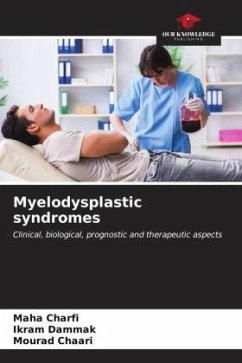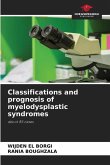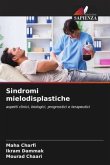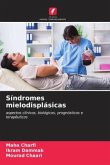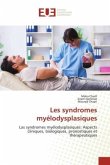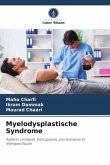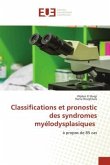Myelodysplastic syndromes (MDS) are a heterogeneous group of pathologies associated with abnormal hematopoiesis characterized by a high risk of progression to acute myeloid leukemia (AML). The aim of our work is to determine the epidemiological, clinical, cytological, prognostic and therapeutic features of MDS in southern Tunisia. We enrolled 41 patients with MDS. The sex ratio was 1.56. The mean age was 63 years. The anemic syndrome was the main clinical manifestation at diagnosis (86%), and signs of dysplasia of the erythrocyte, granule and platelet lineages were found in 68%, 81% and 66% of myelograms respectively. MDS-EB2 was the dominant MDS type in our series (38%) according to the WHO 2016 classification. The karyotype was abnormal in 62% of cases. Complex karyotype and 5q deletion were the most frequent chromosomal aberrations. The majority risk groups according to IPSS scores were the high-risk group (31%). Specific treatment was prescribed in 30% of cases. One-year overall survival (OS) was 56%.
Bitte wählen Sie Ihr Anliegen aus.
Rechnungen
Retourenschein anfordern
Bestellstatus
Storno

